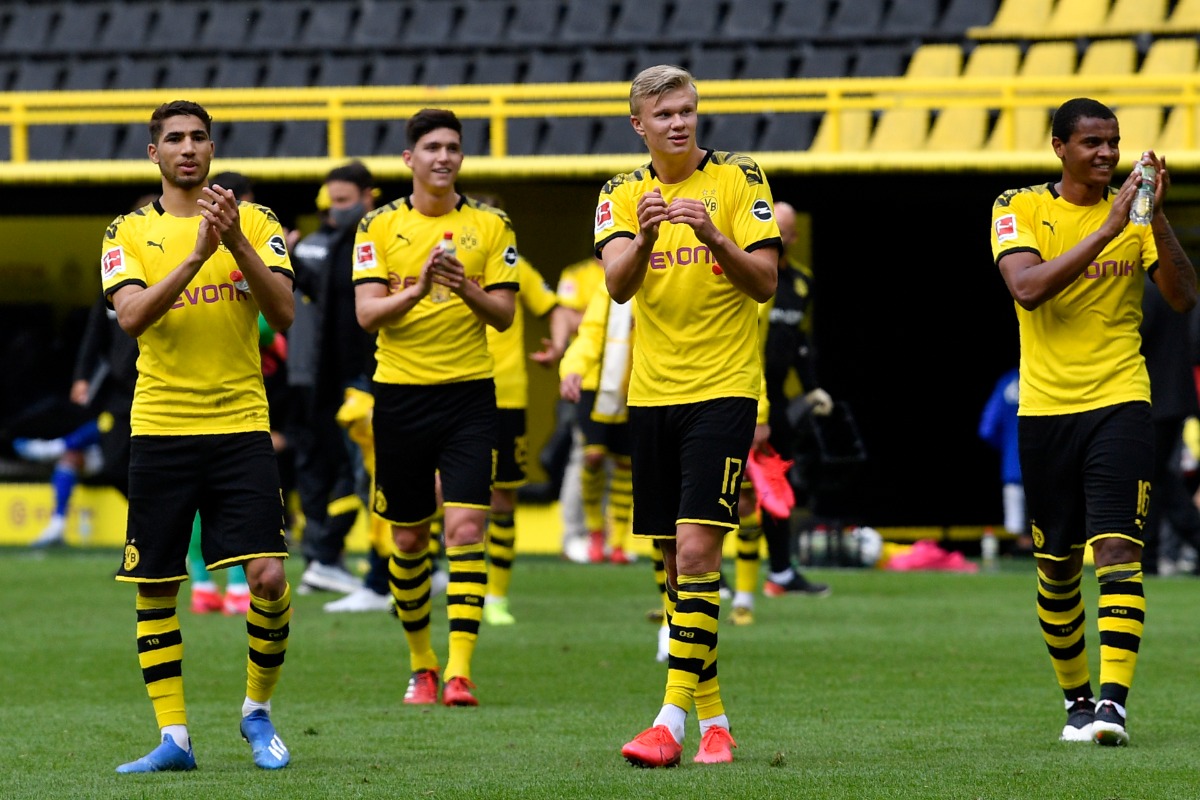IT firm Happiest Minds acquires Macmillan Learning India
IT services management company Happiest Minds Technologies on Friday said it is acquiring Macmillan Learning India which will become a wholly-owned subsidiary of the company.
The countries have differed in their approaches to the persistent, boisterous and none too socially sensitive calls for football to be back on the pitch, of course.

(Martin Meissner / POOL / AFP)
There is no doubt that, left to itself, the world’s professional sport ~ and virtually the entire range of it ~ would by now have been back in gleeful business, its initial stupefaction in the face of the rapid spread of Covid-19 notwithstanding.
As lockdowns everywhere bred boredom, restlessness and even violent protests, and economies could be seen to be sliding, pro sport, cerebrally led by master tacticians well-schooled in a variety of arts inclusive of suave persuasion through the usual ~ and also unusual ~ means, was only biding its time before making the all-important, highenergy swoop.
The USA has so far been mostly unaffected by it ~ it’s never had it this bad, after all ~ but Europe could be felt to have been brainwashed virtually into equating the absence of top-tier competitive football with waking up one day to find a world where there was no water to drink.
Advertisement
Or, no woman to ogle. It happens to be the hub of global football, with unimaginable billions of dollars, or euros, at stake. The countries have differed in their approaches to the persistent, boisterous and none too socially sensitive calls for football to be back on the pitch, of course.
But if France has ruled out a prompt resumption, Germany has got on with its Bundesliga and England, Spain and Italy are among those who have given the green light for domestic tournaments to restart, quite obviously without fans in the stands.
A few Asian nations have gone the same way too, and no matter where the purported itch for the putatively Beautiful Game manifests itself, the rationale cited for the hurriedly organised comeback is that there is so much money staked on this that you can hardly give up on it, whatever the circumstances.
In our cricket, the same logic is trotted out for the Indian Premier League of the game’s Twenty20 version, where money is spent by those in possession of it like water. Barring exceptions, all the world’s front-rank cricketers, including high-profile Australians, have clamoured, probably not without promptings, for it to replace the T20 World Cup, which Australia is scheduled to host later this year.
Given that the IPL too anticipates an edition which will not throw the gates open to the glam-relishing enthusiasts, pro sport seems to transmit quite a sufficiency of signals that it can be happily shot of the bothersome element called bums on bleachers ~ the big money comes from sponsors and television ~ in the post-Covid 19 age.
Which is why we endure this bizarre spectacle, on the one hand, of the statistical burgeoning of the coronavirus’ victims ~ patients, the dead ~ in so many places and sport’s growing self-assertiveness in terms of claiming its own territory, on the other. It’s more surprising that it gets its way all right, its critics ending up on its side.
Advertisement